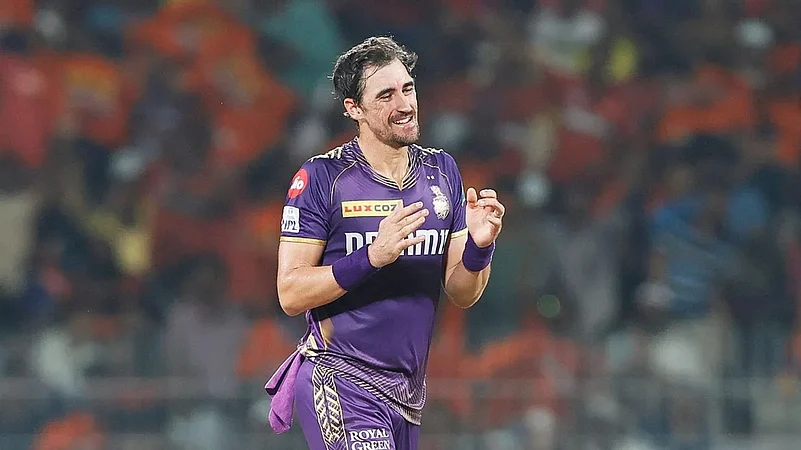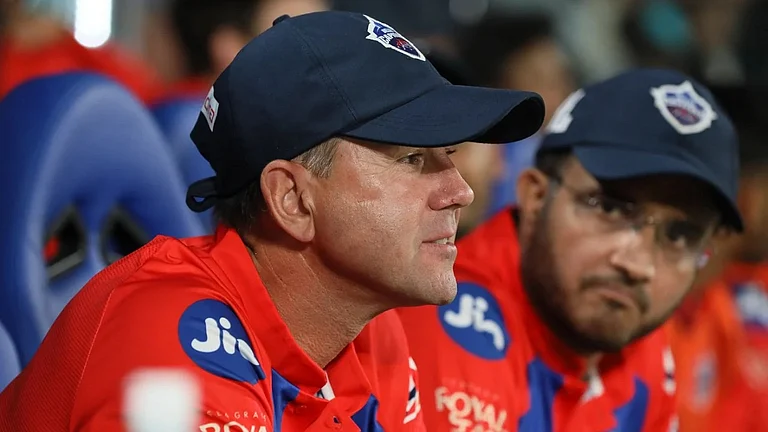As yet another edition of the Indian Premier League came to an end after a little over two months of intense T20 cricket played across the length and breadth of the land, it was finally down to Kolkata Knight Riders vs Sunrisers Hyderabad on the big day in Chennai. (Full IPL Coverage | More Cricket News)
T20 World Cup Preview, Part 1: Why Big Scores A La IPL Might Not Be Seen In USA, West Indies
The recently concluded 2024 season of Indian Premier League saw merciless hitting and several 250-plus scores. But bowlers might not be akin to helpless lambs to the slaughter in the upcoming T20 World Cup. In part one of a three-article series, the author explains why

KKR have been brilliant throughout the tournament and simply blew away the Hyderabad side by an imperiously dominant performance in one of the most one-sided IPL finals ever. And after being bowled out for the lowest-ever total in a final, SRH were left with the task of pulling a rabbit out of the hat to stay in the match.
Sadly for them, KKR were in no mood to allow that.
But this write up is not about the Knight Riders. Or SRH.
As the IPL meandered to its business end after 73 tumultuous matches, the image of the impending T20 World Cup grew more and more prominent, hovering over the last few games of the IPL. And after the announcement of the Indian team for the tournament, thoughts turned increasingly towards it.
It is reasonably certain that it will be a different ball game, out there in the West Indies and the US.
Bowlers More In The Game
For one thing, the bowlers will be a lot more like their original selves again, ceasing to be the helpless lambs to the slaughter that they were made out to be, at the IPL.
And as if to serve notice of this fact, Mitchell Starc, the most expensive buy of the tournament, struck ominous form right on cue, in the first Qualifier against SRH, after a series of forgettable outings. He suddenly looked a different bowler altogether as he carried that form into the final.
And this could well prove to be crucial to Australian chances at the World Cup, where he and Pat Cummins will be steaming in with the new ball for the Aussies. Jofra Archer and Mark Wood will do the same for England, Trent Boult and Lockie Ferguson for New Zealand, our own Jasprit Bumrah and Mohammed Siraj for India and Kagiso Rabada and Anrich Nortje for South Africa, amongst others. They will all mean business, even in the sweltering heat in the West Indies and it could get interesting, especially if the ball moves around a bit in the air, or off the wicket.

And chances are, they won’t be disappearing to different parts of the ground quite as easily as they were, here at the IPL, where star bowlers sometimes went for 15-16 runs per over in their four- over spells. Even though the grounds are going to be comparatively small, especially those in the West Indies.
Why 250-Plus Scores Are Unlikely To Be Norm
The unspoken question, ‘Will the T20 World Cup also turn out to be a batting slog fest like the IPL?’ currently hangs on a thousand lips. Maybe it will, but only to a certain extent in the group matches, and definitely not so much in the knockout games. The 250-plus totals that had become so much the rage at the IPL, with SRH alone having got three of them, may well become more of an exception than the norm there.
A quick look at the scores in the final matches of all T20 World Cups thus far since 2007 is instructive, with the highest total being achieved by Australia when they chased down New Zealand’s 172 in Dubai in the 2021 final. That is 78 runs less than a 250-plus total and barring that game, all other finals have been comparatively low-scoring affairs over the past eight editions of the tournament.
A fact that is unlikely to suddenly change this time around either, the high totals at the IPL notwithstanding.
In a recent interview, Ricky Ponting held forth on how the shortest format had changed dramatically in recent times and become a much more power-hitting oriented game. “The mantra I think for the teams three or four years ago was making sure that someone at the top of the order made 80 or 100, and even if it took them 60 balls, it didn’t really matter,” Ponting said.
“I think it’s sort of shifting now to be more of a strike-rate based game where you can have a massive impact on a game with a 40 off 15 balls rather than getting an 80 off 55 balls sort of thing,” he added.
Which essentially means that an explosive 15 or 20-ball knock at a dizzying strike rate of around 250 or so, particularly in the powerplay, is now considered more valuable in getting your team to a winning position in today’s T20 games.
True to this line of thinking, Delhi Capitals’ young Aussie import Jake Fraser-McGurk set new power hitting records at this IPL, becoming the first player to hit three separate fifties in 20 balls or less. He scored a 50 off just 20 balls against the Royals, and two other half-centuries in 15 balls each against the Sunrisers and Mumbai Indians respectively. And some young Indian players matched him stroke for stroke.
That kind of brutal striking is now becoming par for the course, although to put it in its proper perspective, Yuvraj Singh had hit a 12-ball 50 in the inaugural T20 World Cup in 2007, slamming a hapless Stuart Broad for a record six 6s in an over in the process. And an equally brutal 70 off 30 balls against Australia in the semi-finals. And of course, who can forget Carlos Braithwaite’s four consecutive sixes off Ben Stokes, chasing down 19 in the final over with two balls to spare, in the 2016 T20 World Cup final at Eden Gardens.
So strike rates in excess of 200 in winning causes are not exactly new.
On the other hand, there was also Jos Buttler ‘s unbeaten 55-ball hundred against KKR this year, carrying his bat and anchoring the chase initially, before exploding in the death overs, to get his team over the line.
So that approach still works just fine too.
The Virat Kohli Question
Ponting also believes that Virat Kohli, who has been the highest run-getter in T20 World Cups thrice already, including the last one in 2022, is best suited to assume that role for India on current form. He can open the batting alongside skipper Rohit Sharma and bat deep, while others - including Rohit himself - and the likes of Surya Kumar Yadav take on a more explosive approach in building a big total.
Unfortunately, Yashasvi Jaiswal, who has time and again demonstrated his attacking brilliance even in Test matches, has been out of sorts after the England series, and not his usual explosive self for a while. It would be interesting to watch how he shapes up in his first World Cup.
His lack of form may enhance the need to play Virat Kohli as an opener and anchor the Indian innings at this World Cup. Interestingly, skipper Rohit and Shakib Al Hasan of Bangladesh are the only two players to have featured in every single ICC Men’s T20 World Cup till date, having made their debuts at the inaugural tournament of 2007 in South Africa. They will both be in action again 17 years down the line, as the sole remaining members from the maiden T20 World Cup sides of their respective countries.
And that is something to be so proud of.
(That concludes part 1 of this series. The next instalment delves into the history and genesis of the T20 World Cup)
The views and opinions expressed are those of the author. The author is a veteran Wing Commander of the Indian Air Force, who has played Ranji Trophy for Services.
- Previous StoryBangladesh Vs England Live Streaming, Women's T20 World Cup 2024: When, Where To Watch Match 6
- Next Story





























